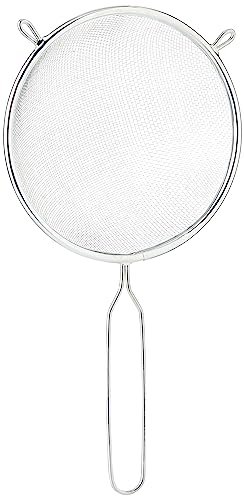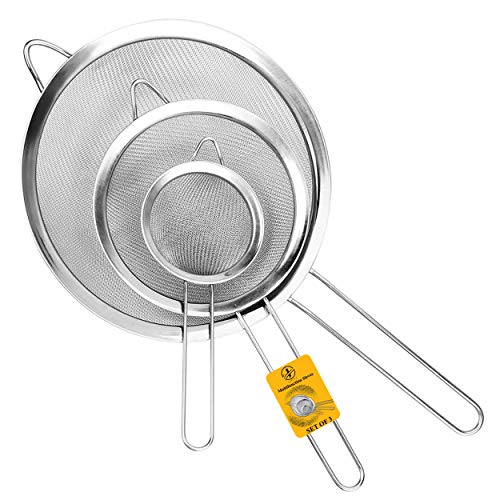The best material for a sieve is stainless steel.
Stainless Steel: The Ideal Material for a Sieve
When it comes to choosing the perfect material for a sieve, stainless steel stands out as the top choice. Stainless steel is known for its durability, corrosion resistance, and hygienic properties, making it the ideal material for food-related applications. Whether you’re sifting flour, straining liquids, or separating solids, a stainless steel sieve offers excellent performance and longevity.
Durability: A Stainless Steel Sieve That Lasts
One of the key advantages of stainless steel as a sieve material is its exceptional durability. Unlike other materials like plastic or aluminum, stainless steel is not prone to cracking, warping, or breaking under pressure. It can withstand repeated use without losing its shape or structural integrity, ensuring that your sieve will last for years to come.
Corrosion Resistance: Say Goodbye to Rust
Rust is a common problem with sieves made from materials like iron or aluminum. However, stainless steel is highly resistant to corrosion, making it an excellent choice for wet sieving or when working with liquids that may cause other metals to rust. A stainless steel sieve will maintain its sleek appearance and functionality even when exposed to moisture or wet ingredients.
Hygienic Properties: Keep Your Food Safe
When it comes to food-related applications, hygiene is of utmost importance. Stainless steel is non-porous and easy to clean, making it resistant to bacterial growth. This is crucial for maintaining food safety and preventing cross-contamination. By choosing a stainless steel sieve, you can be confident that your food will be free from contaminants.
Versatility: Suitable for a Range of Applications
Stainless steel sieves are incredibly versatile and can be used for a wide range of applications. Whether you’re sifting dry ingredients, straining liquids, or sieving fine powders, stainless steel provides excellent performance across the board. Its fine mesh ensures accurate separation while allowing for efficient airflow, making it a staple tool in any kitchen or laboratory.
In conclusion, stainless steel is the best material for a sieve due to its durability, corrosion resistance, hygienic properties, and versatility. With a stainless steel sieve, you can be confident in its long-lasting performance and easy maintenance. Whether you’re a home cook or a professional chef, investing in a reliable stainless steel sieve will make your cooking and baking tasks much easier.






